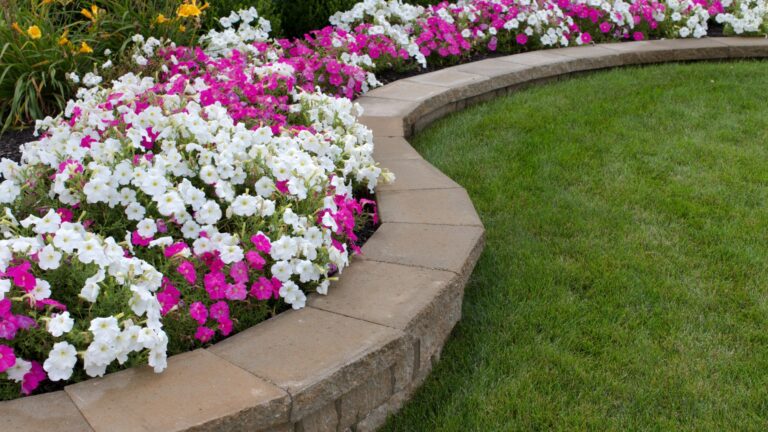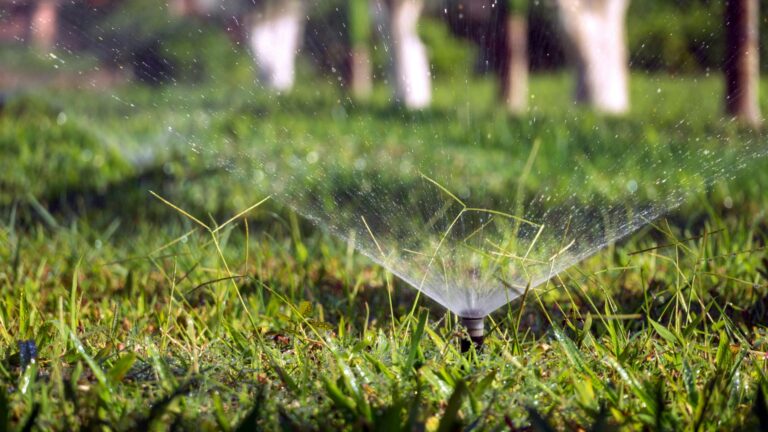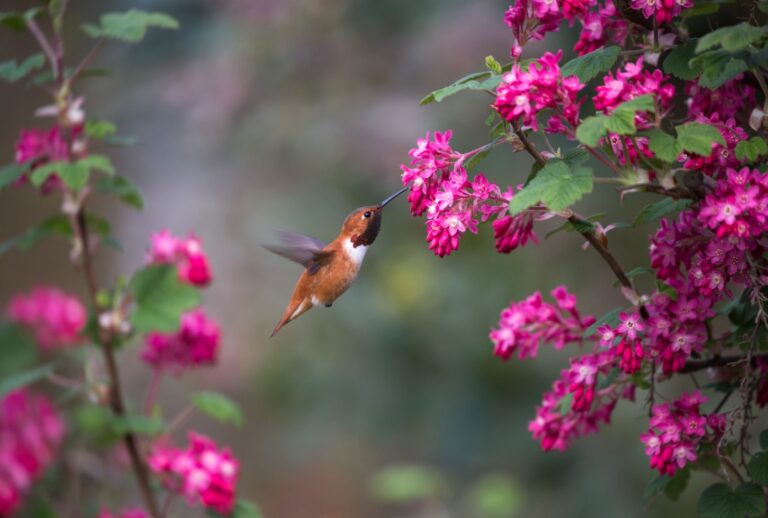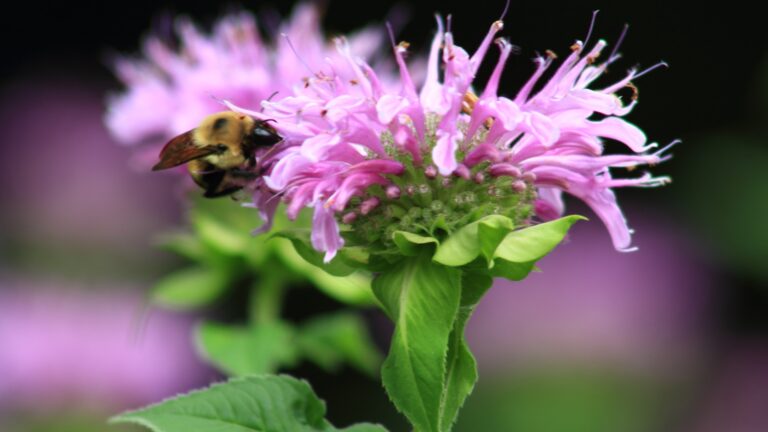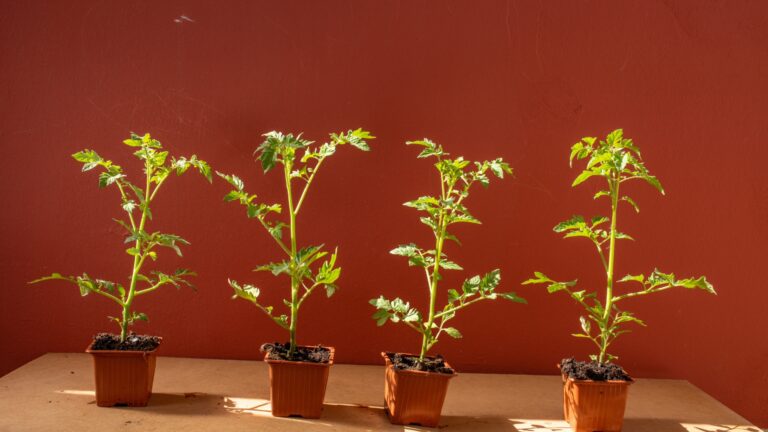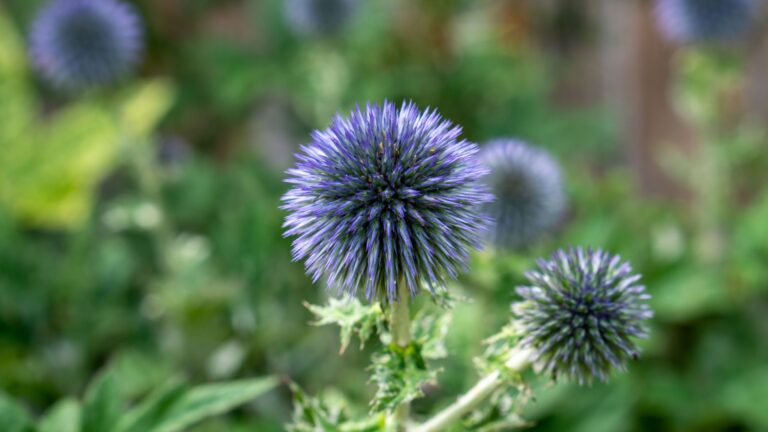27 Plants That Secretly Harm Your Cucumbers When Planted Nearby (And More Risky Veggies)
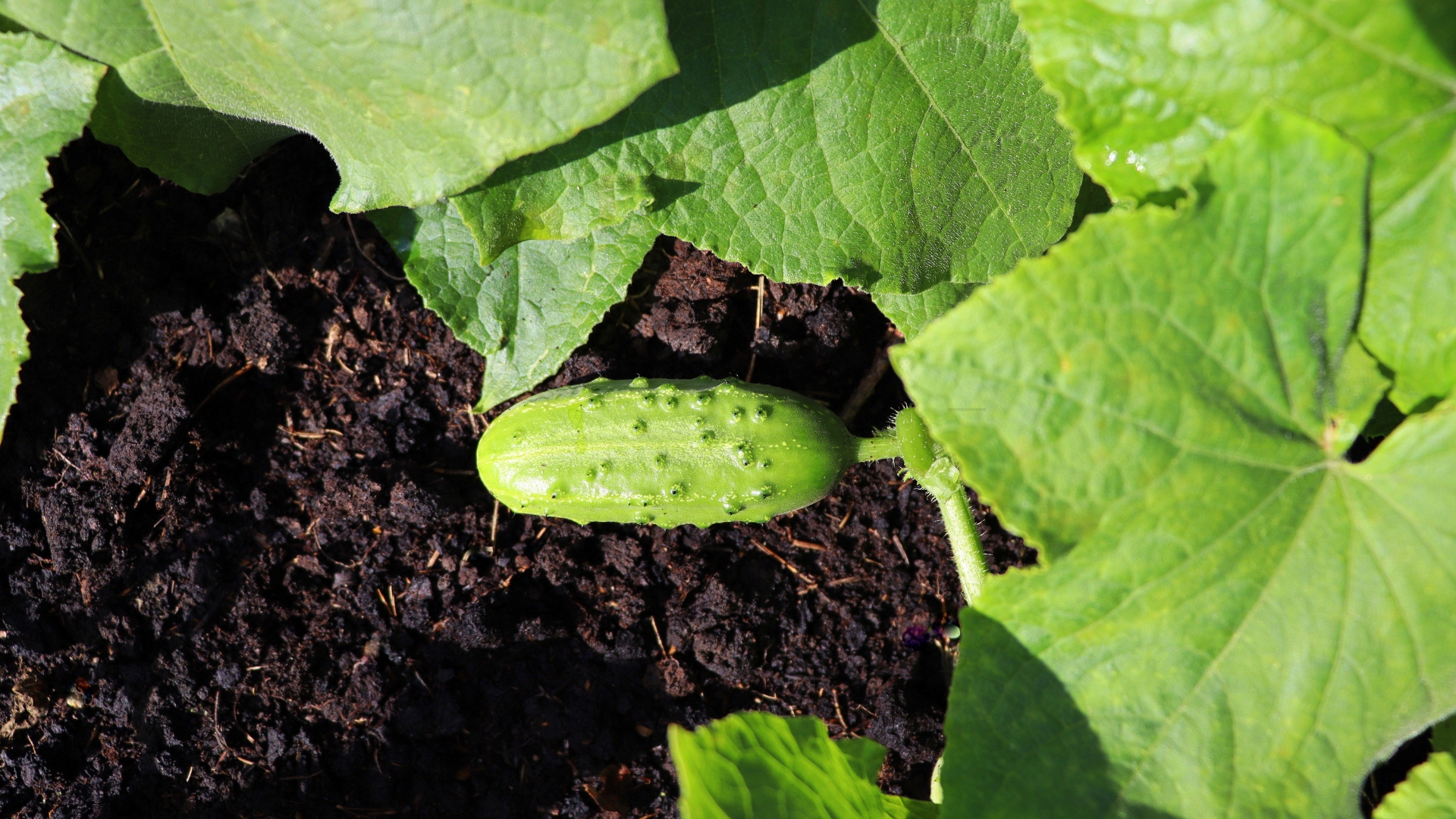
Cucumbers might be the cool kids of the garden—crisp, refreshing, and laid-back—but not every plant is a friendly neighbor. Some steal their food, invite in pests, or spread nasty diseases that leave your cukes in crisis.
Dreaming of a drama-free harvest? Slip on your gloves—these are the garden bullies your cucumbers definitely don’t want living next door!
1. Potatoes
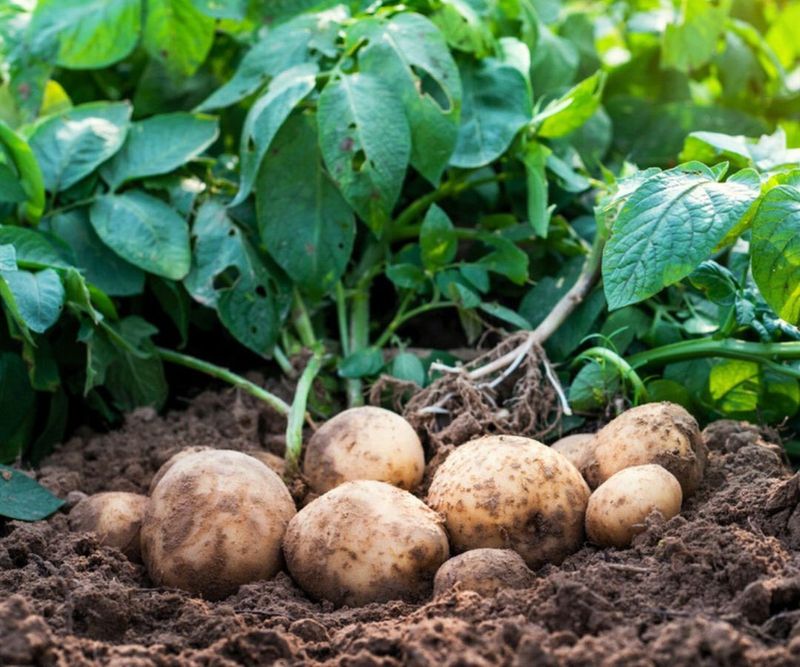
Residing near a certain tuber can spell trouble for your cucumber crop. Potatoes, with their underground spreading nature, compete aggressively for nutrients. This competition can leave cucumbers malnourished.
Additionally, potatoes can attract pests like the Colorado potato beetle, which won’t hesitate to munch on your cucumbers too. So, if you want your cucumbers to thrive, it’s best to plant potatoes elsewhere in your garden.
2. Sage
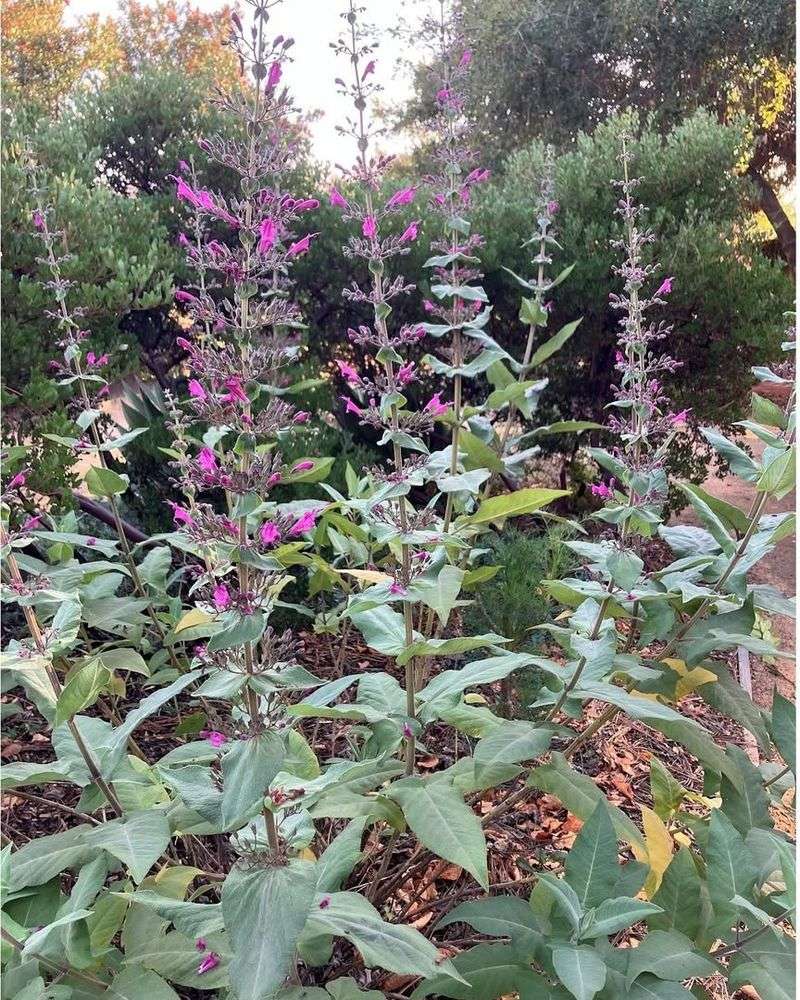
The aromatic presence of this herb can have a negative influence on cucumbers. Sage is known for its fragrant leaves and culinary uses, but its strong scent can deter the growth of cucumbers.
This herb can also alter the soil composition, making it less favorable for cucumbers. To keep your cucumbers happy and healthy, consider planting sage in a separate section of your garden.
3. Fennel
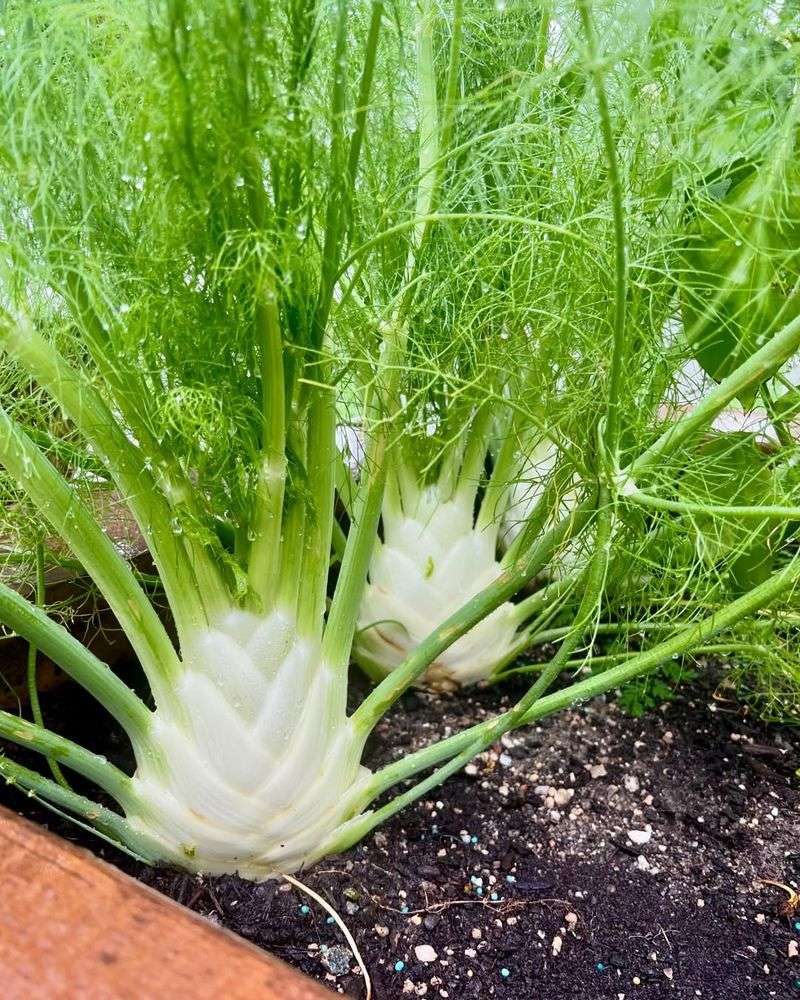
This feathery plant may seem harmless, but it can be a challenging neighbor for cucumbers. Fennel releases chemical compounds that can inhibit the growth of nearby plants, including cucumbers.
Its allelopathic nature makes the soil less inviting for cucumbers to flourish. For a harmonious garden, it’s wise to place fennel away from your cucumber patch.
4. Mint
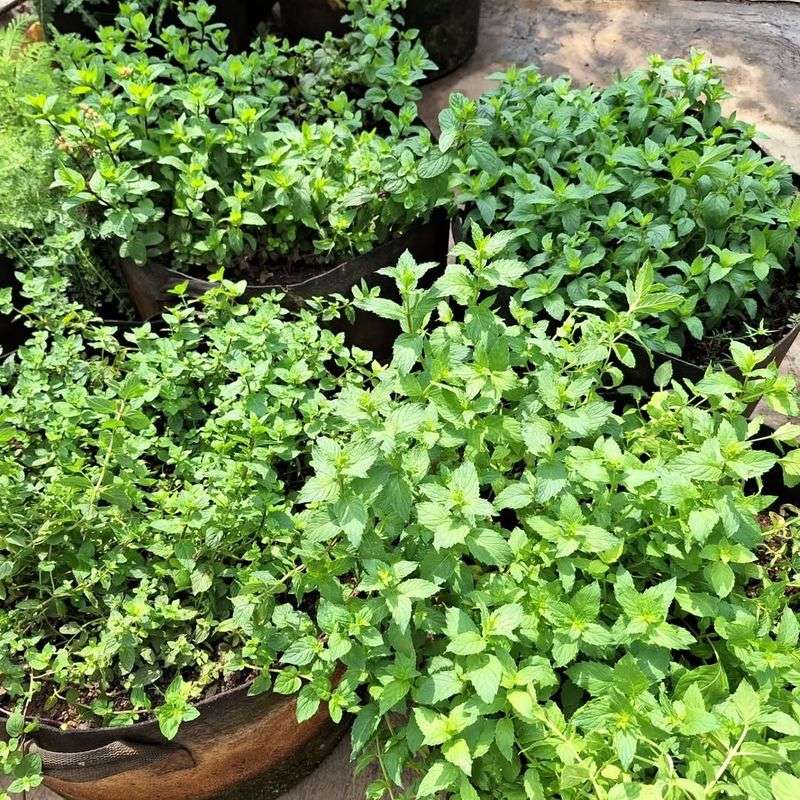
The vigorous growth of this herb can overshadow and compete with cucumbers for space and resources. Mint’s rapid spread can quickly overcrowd your cucumber plants, resulting in reduced growth.
Additionally, mint can attract pests such as aphids, which are unwelcome visitors to cucumber plants. To maintain a cucumber-friendly environment, keep mint contained and distant.
5. Pumpkins
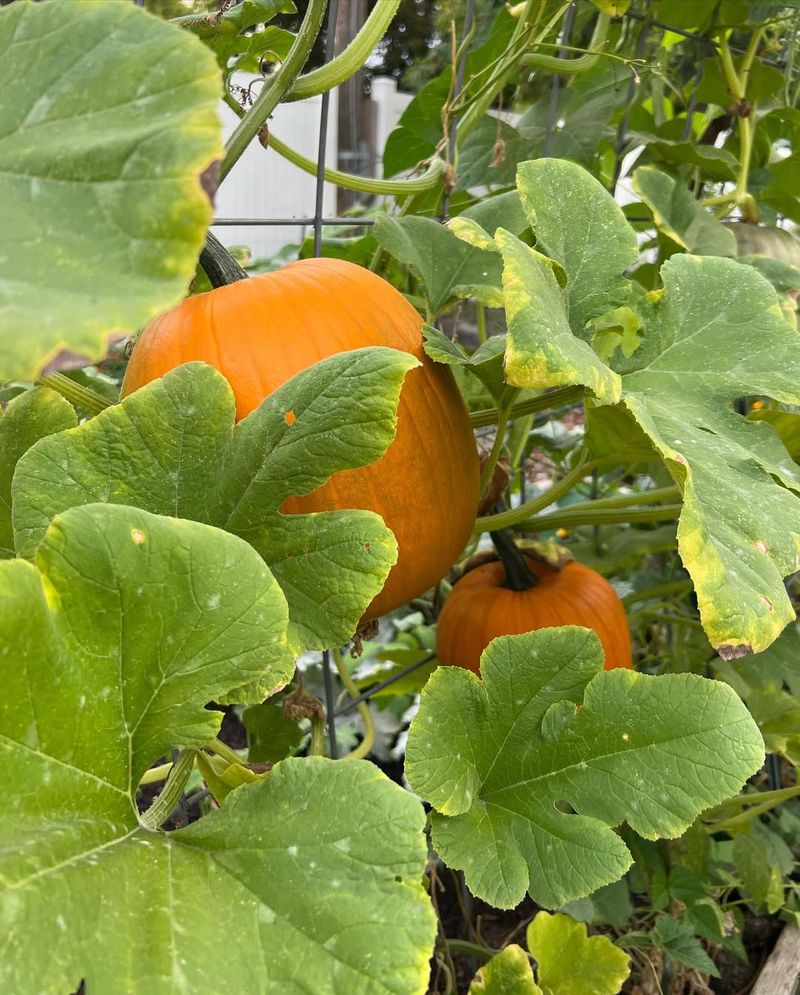
The sprawling nature of certain large fruits can dominate and choke out cucumber plants. Pumpkins, with their extensive vine systems, can overshadow cucumbers, depriving them of sunlight.
This lack of light can hinder the cucumbers’ ability to photosynthesize effectively. For cucumbers to reach their full potential, ensure pumpkins are planted far away.
6. Tomatoes
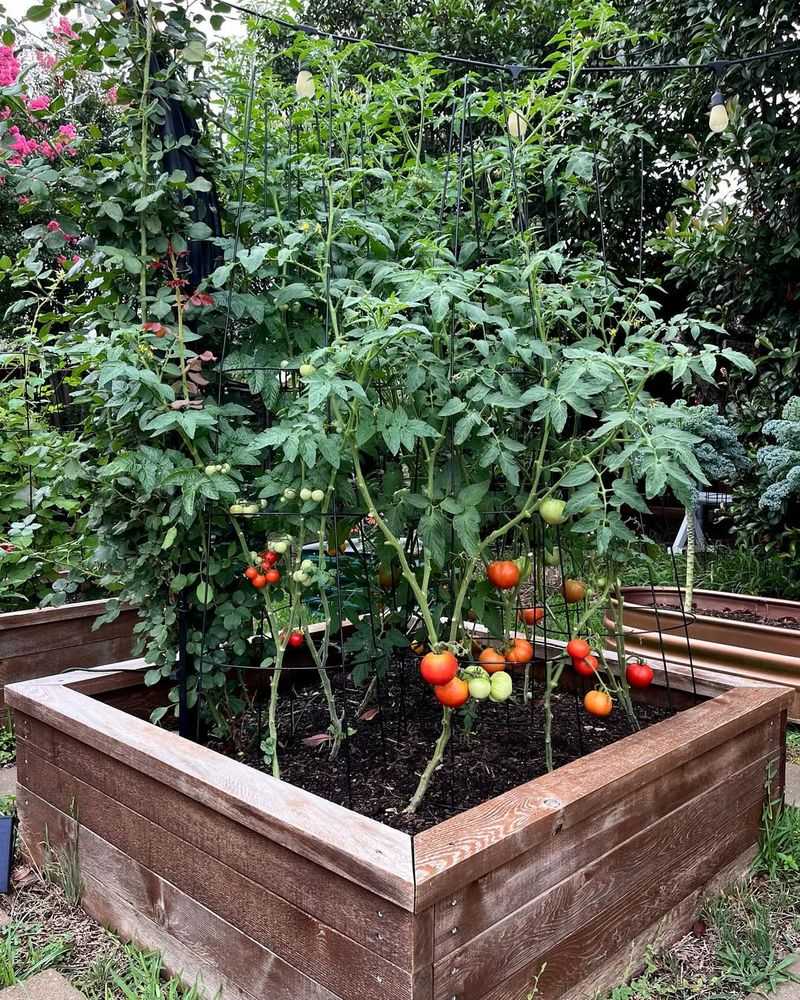
These popular garden fruits might not be the best companions for cucumbers. Tomatoes and cucumbers can compete for nutrients and water, leading to reduced yields for both.
Additionally, tomatoes can attract pests like aphids and whiteflies, which may also target cucumbers. To maximize your cucumber harvest, it’s best to give them some space from tomatoes.
7. Sunflowers
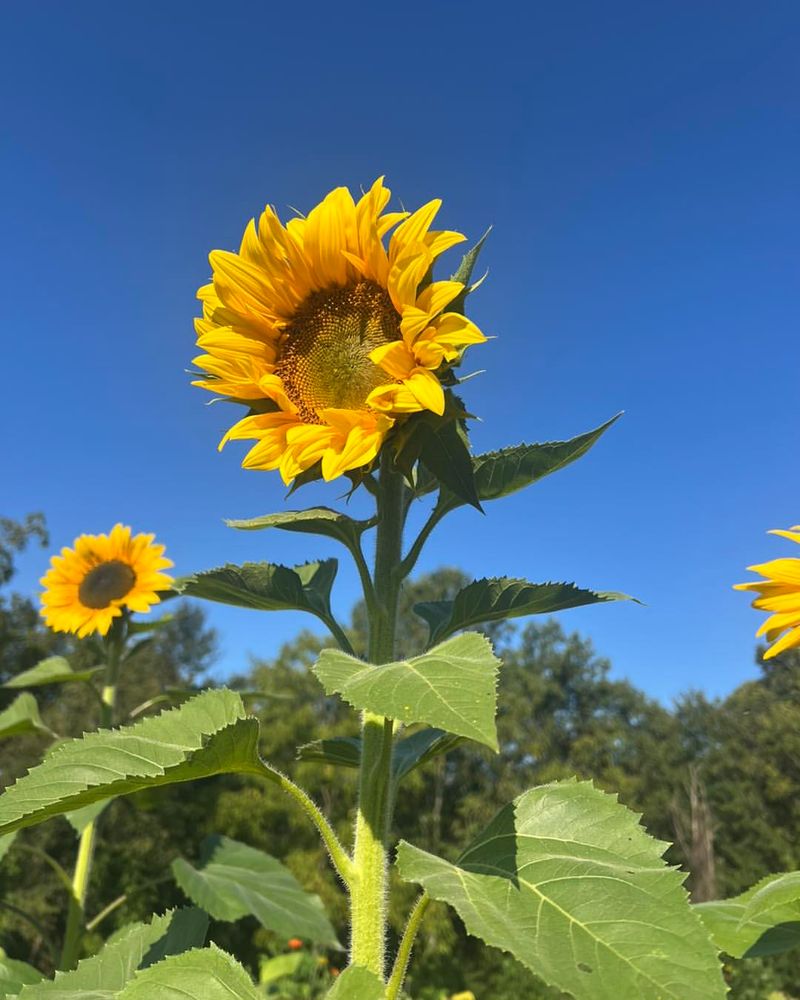
Though they bring cheer to a garden, these sunny blooms aren’t ideal neighbors for cucumbers. Sunflowers are known for their tall stature and can cast shade over cucumber plants.
This shade can impede the cucumbers’ growth and reduce their yield. To allow your cucumbers to bask in full sunlight, consider planting sunflowers elsewhere.
8. Corn
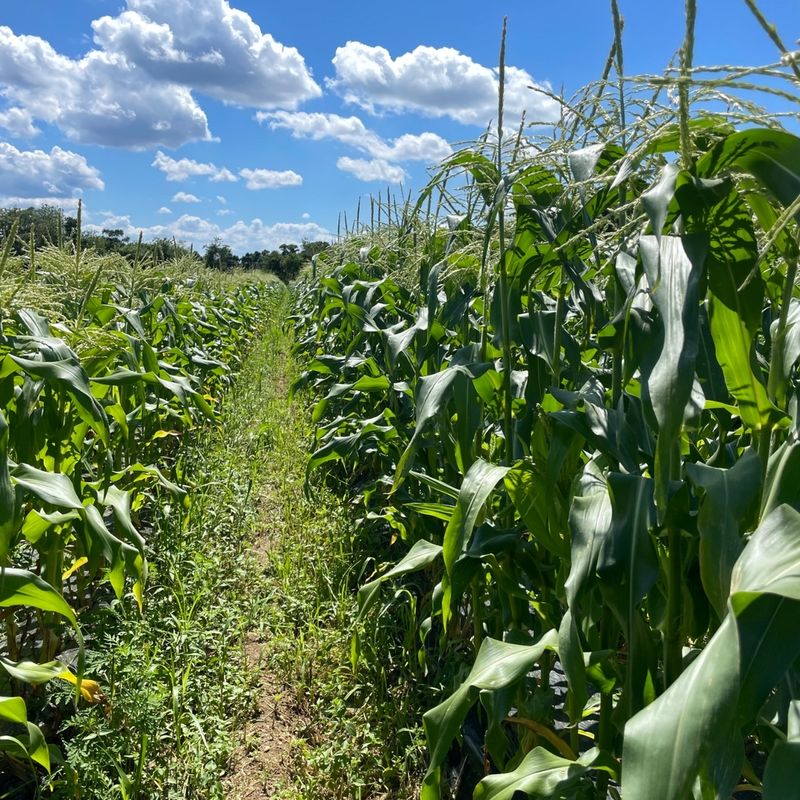
This staple crop may not play nice with your cucumbers. Corn grows tall and can overshadow cucumbers, blocking essential sunlight.
Additionally, corn can attract pests like corn earworms, which may also target cucumbers. To ensure your cucumbers receive the sunlight they need, it’s advisable to plant corn in a different area of your garden.
9. Brussels Sprouts
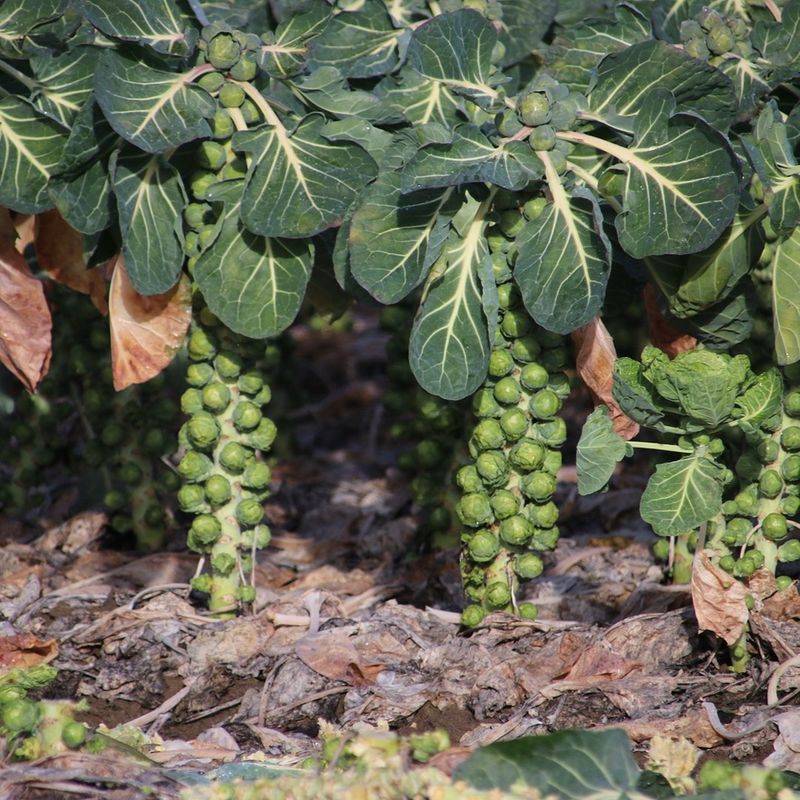
These mini cabbages can be quite the demanding neighbors for cucumbers. Brussels sprouts require a lot of nutrients, which can result in competition with cucumbers.
This competition can lead to nutrient deficiencies for your cucumbers. To keep your cucumbers thriving, consider planting Brussels sprouts in a separate garden bed.
10. Broccoli
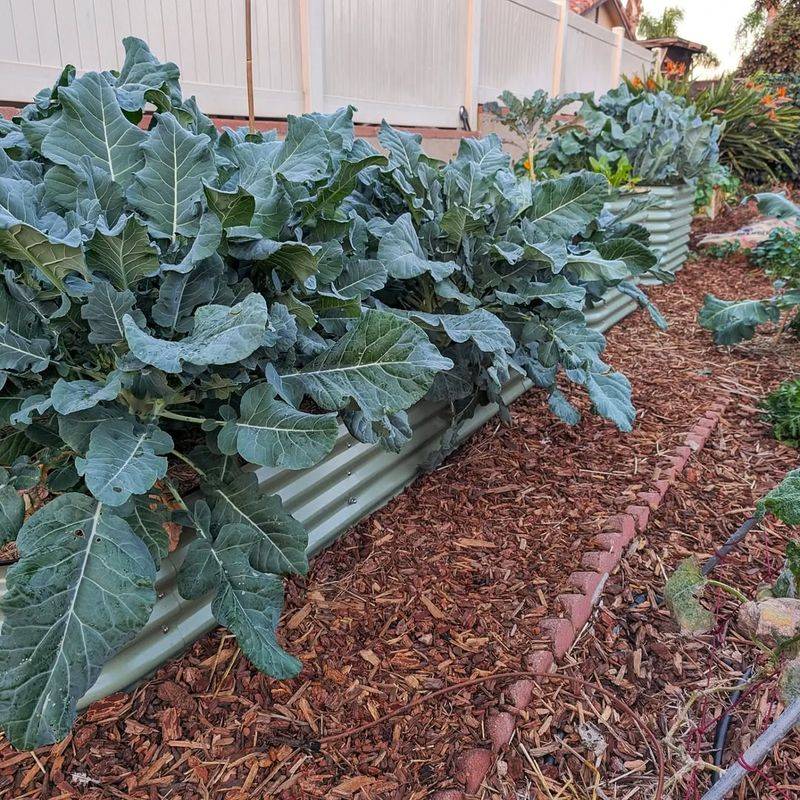
The presence of this cruciferous vegetable can be detrimental to cucumber growth. Broccoli demands a significant amount of nutrients, which can leave cucumbers lacking.
Furthermore, broccoli can attract pests that might hop over to your cucumbers. For a harmonious garden, it’s wise to plant broccoli away from your cucumber patch.
11. Cabbage
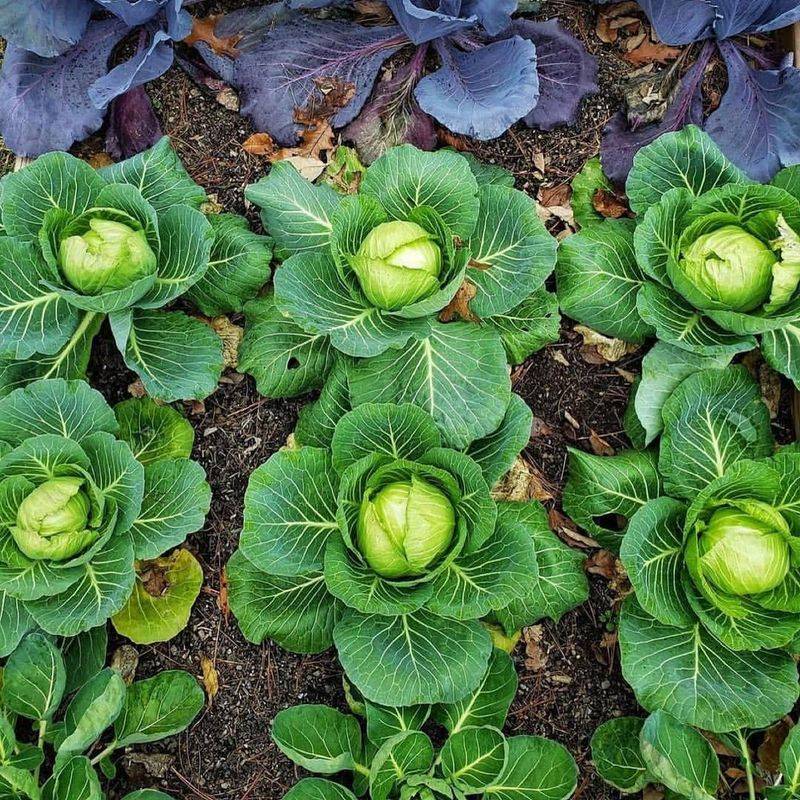
A member of the brassica family, this vegetable can be troublesome for cucumbers. Cabbage can take up a lot of space and nutrients, leaving cucumbers wanting.
Additionally, cabbage may attract pests that can also harm cucumbers. To ensure a healthy cucumber crop, consider giving cabbage its own space in the garden.
12. Cauliflower
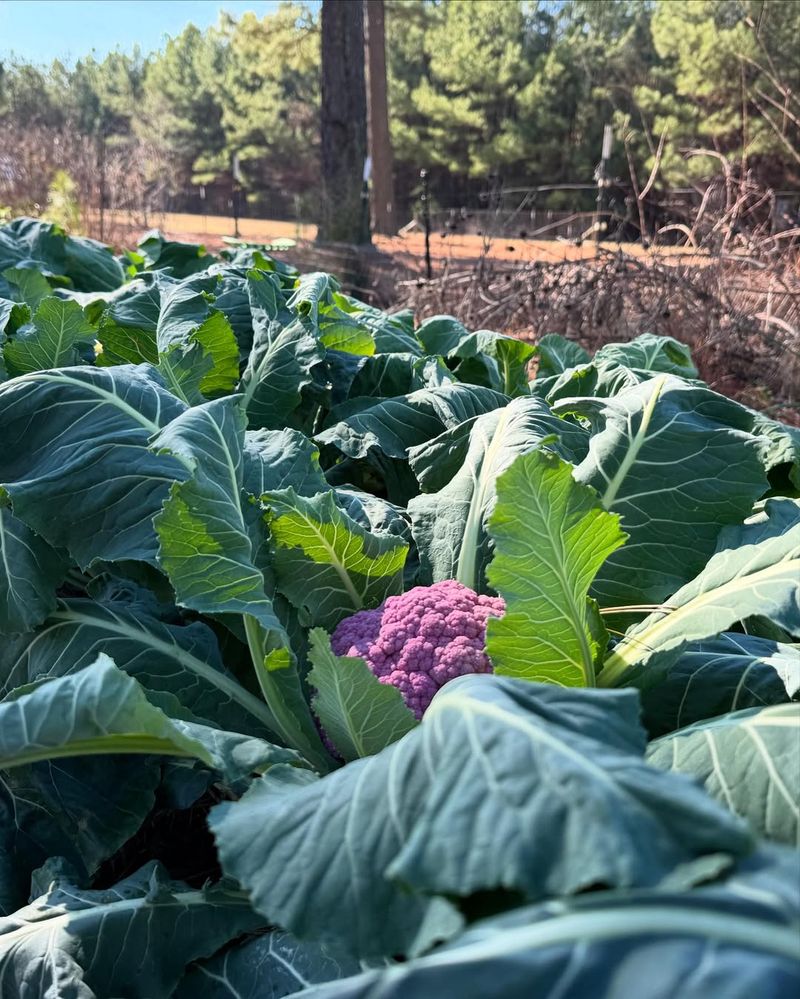
This cruciferous vegetable might not be the best companion for your cucumbers. Cauliflower can be quite demanding in terms of nutrients, leading to competition with cucumbers.
This competition can result in nutrient deficiencies for your cucumbers. To keep cucumbers flourishing, it’s best to plant cauliflower in a different section of your garden.
13. Kale
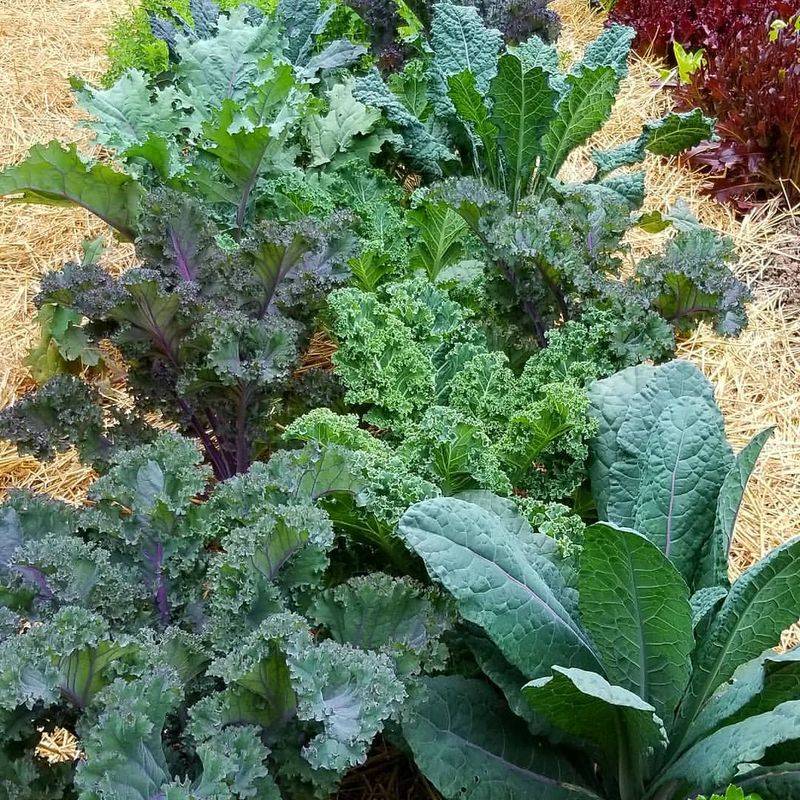
The nutrient needs of this leafy green can clash with those of cucumbers. Kale requires a substantial amount of nutrients, which can result in competition with cucumbers.
This plant can hinder the growth and yield of your cucumber plants. To ensure both plants thrive, it’s advisable to grow kale separately from cucumbers.
14. Turnips
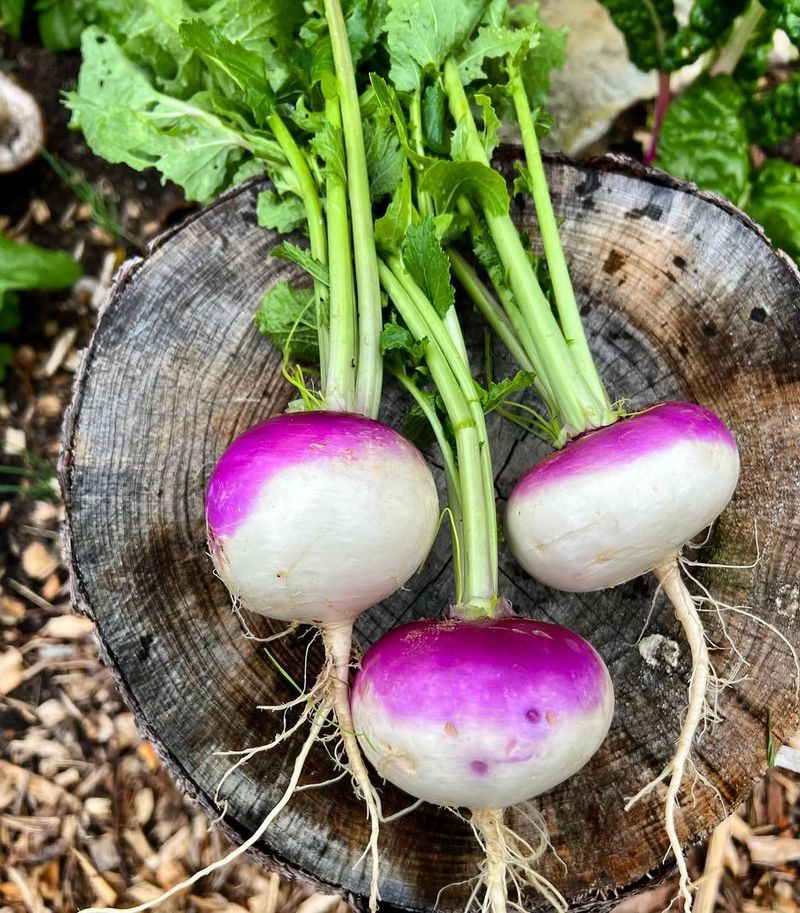
These root vegetables can present challenges when grown near cucumbers. Turnips require significant nutrients, which can lead to competition with cucumbers.
This root veg can result in poorer growth and smaller yields for your cucumbers. For a successful cucumber crop, it might be wise to plant turnips elsewhere in your garden.
15. Radishes
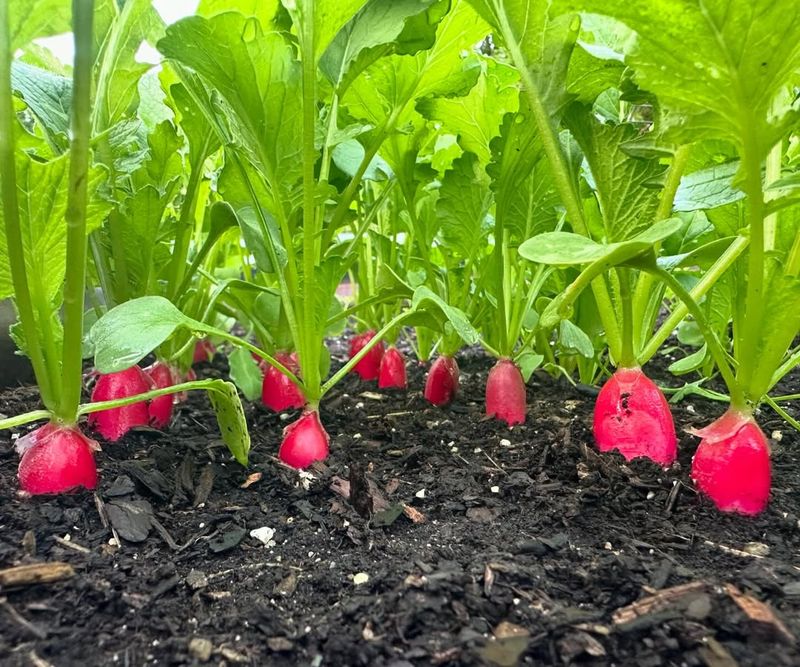
This speedy grower can cause issues for cucumbers in more ways than one. Radishes have fast-growing roots that can disturb the soil structure around cucumbers.
Additionally, they can compete for nutrients and space, potentially impacting cucumber yields. For healthier cucumbers, consider planting radishes in a different bed.
16. Peppers
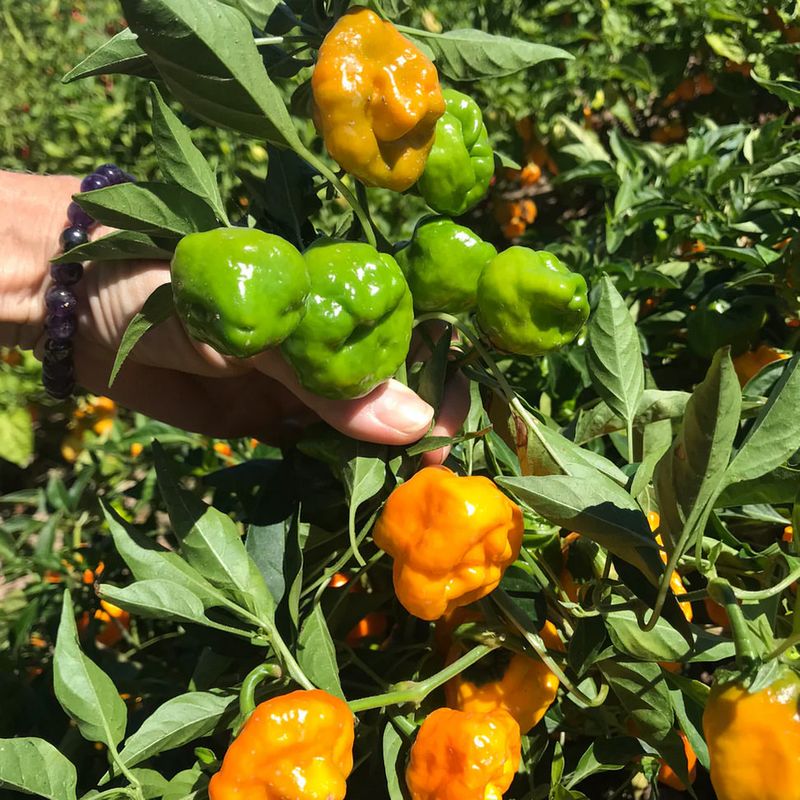
Though they’re a spicy addition to many dishes, peppers can cause problems for cucumber plants. Both plants can attract similar pests, leading to potential infestations.
Moreover, peppers can compete with cucumbers for nutrients, impacting their growth. To keep both plants happy, it’s best to plant them in separate areas of the garden.
17. Zucchini
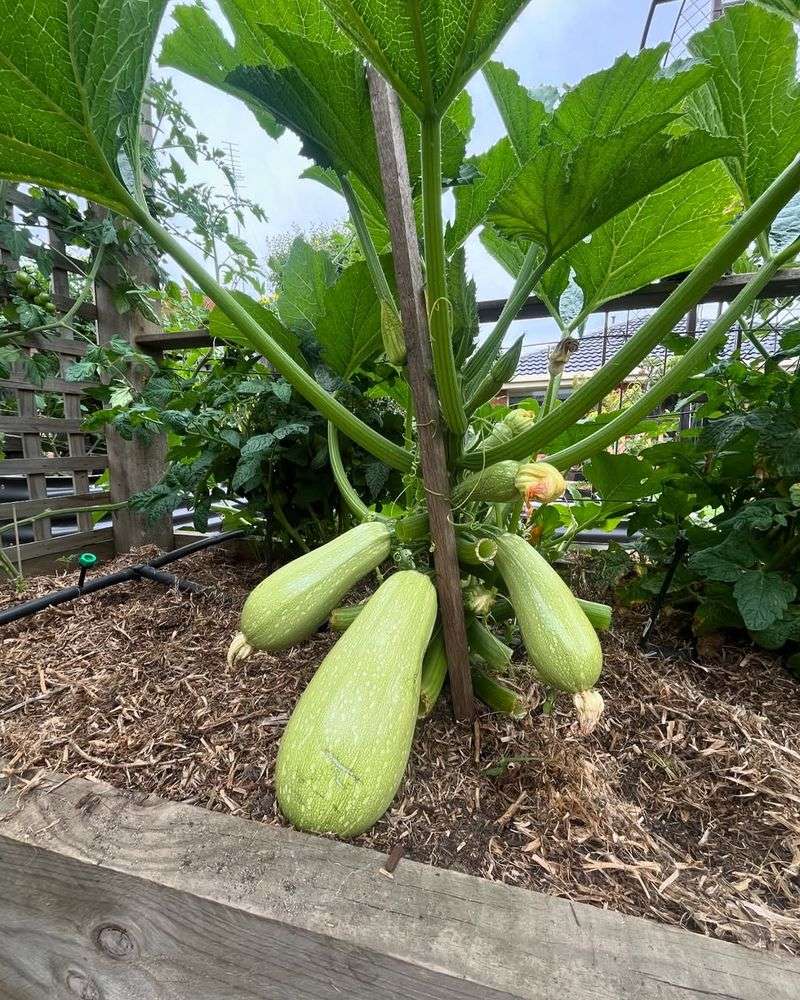
These summer squash can be too much for cucumbers to handle. Zucchini plants grow vigorously and can overshadow cucumber plants, reducing their access to light.
This competition for sunlight can hinder the cucumbers’ ability to produce fruits. To ensure a bountiful cucumber harvest, keep zucchini plants at a distance.
18. Eggplants
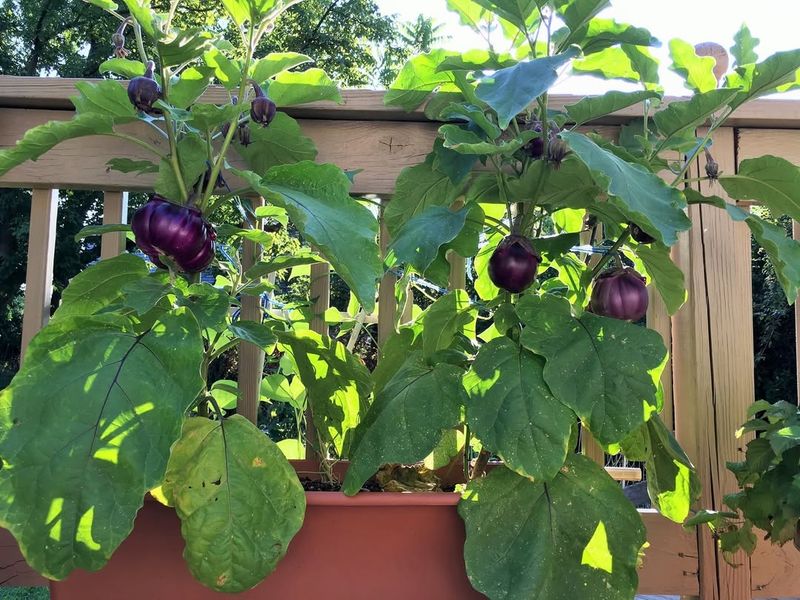
These nightshades can be more than just a colorful addition to the garden. Eggplants can attract pests like flea beetles that might also target cucumbers.
Additionally, both plants can compete for nutrients and sunlight, impacting their growth. For healthier cucumbers, it’s best to plant eggplants in a separate area.
19. Onions
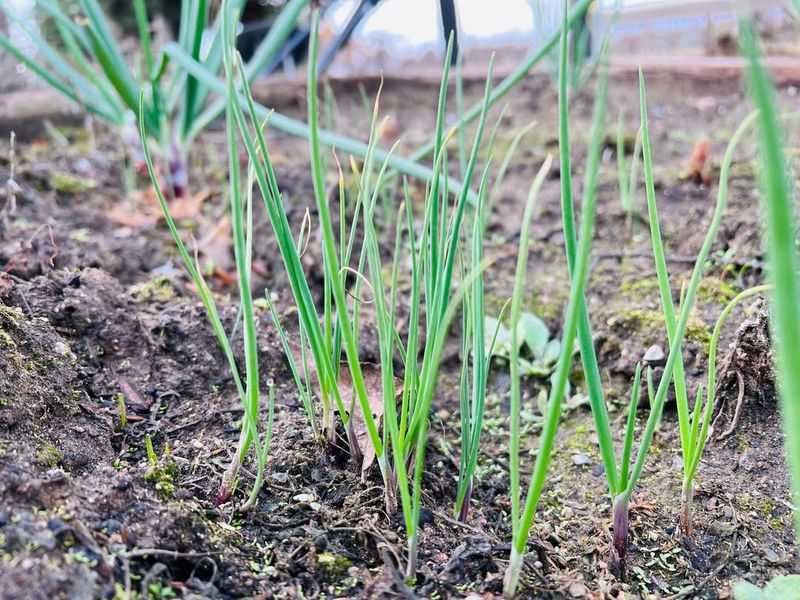
These pungent bulbs might not be the ideal neighbors for cucumbers. Onions can alter the soil conditions, which can be detrimental to cucumber growth.
Additionally, the strong scent of onions can repel pollinators cucumbers rely on. They also grow shallow roots, competing with cucumbers for nutrients and space.
20. Garlic
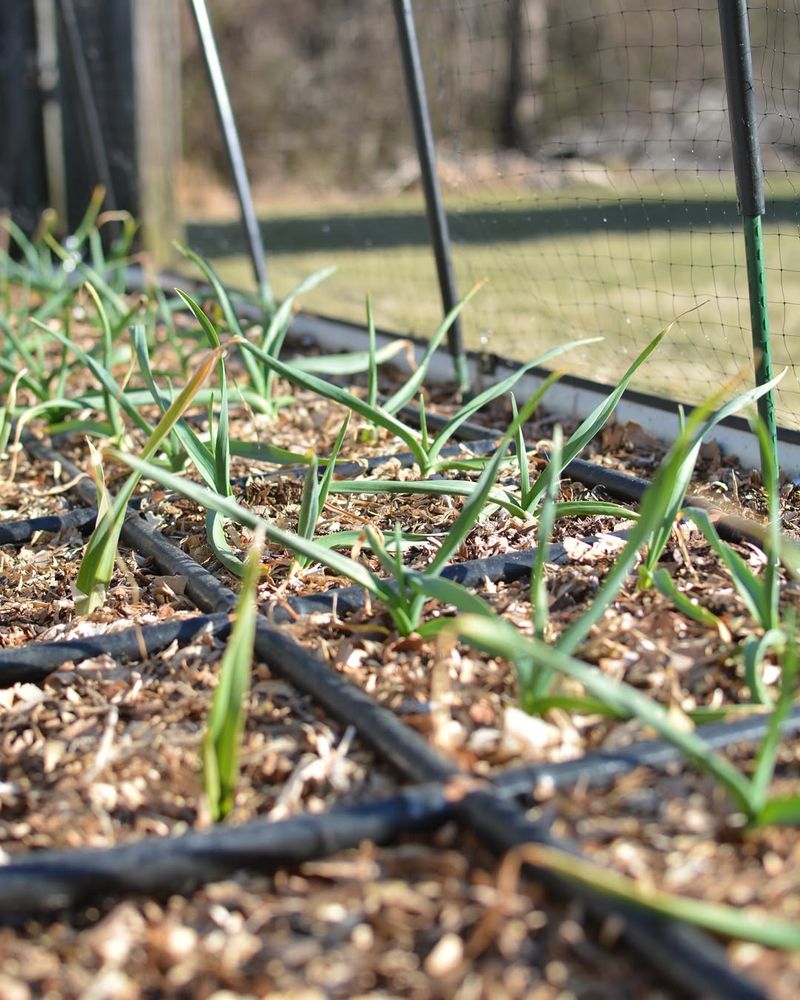
While a staple in kitchens, this bulb can complicate things for cucumbers. Garlic can change the soil composition, making it less favorable for cucumber growth.
And just like onions, garlic can repel beneficial insects, reducing polliation. This aromatic will also fight with cucumbers for space and nutrients. For the best cucumber harvest, consider planting garlic elsewhere in your garden.
21. Carrots
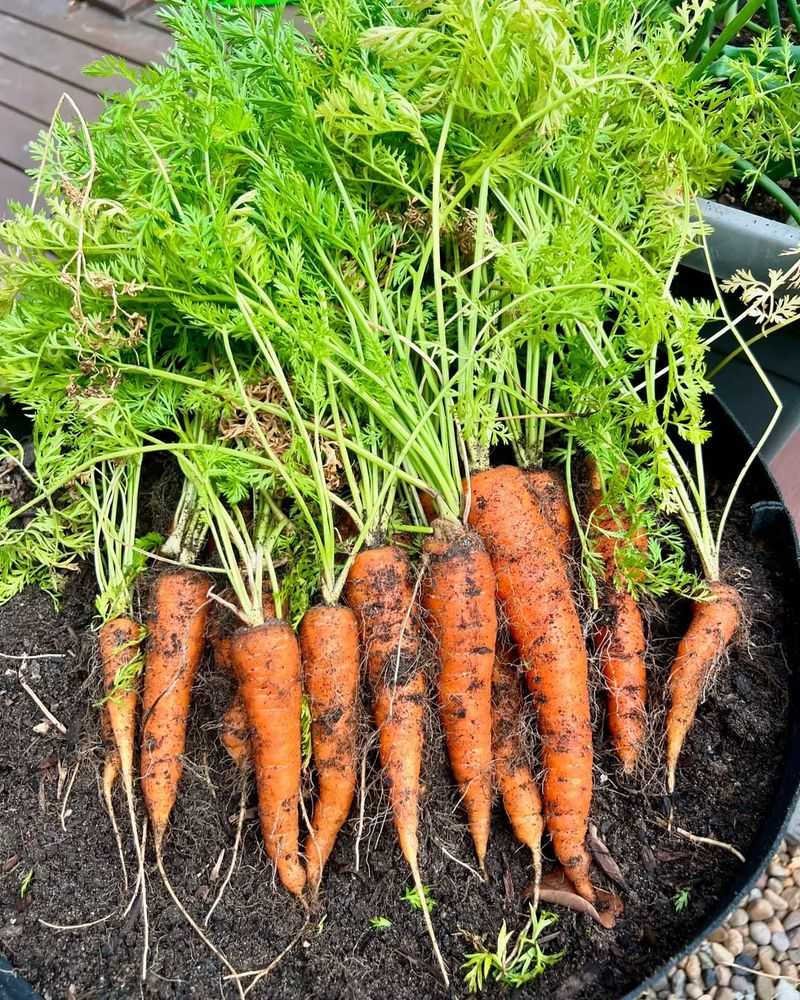
These root vegetables may seem harmless, but they can cause issues for cucumbers. Carrots have deep-root systems that can disturb the soil around cucumber plants.
This disturbance can impact cucumber growth and yield. To keep cucumbers thriving, it’s best to plant carrots in a different area of your garden.
22. Beets
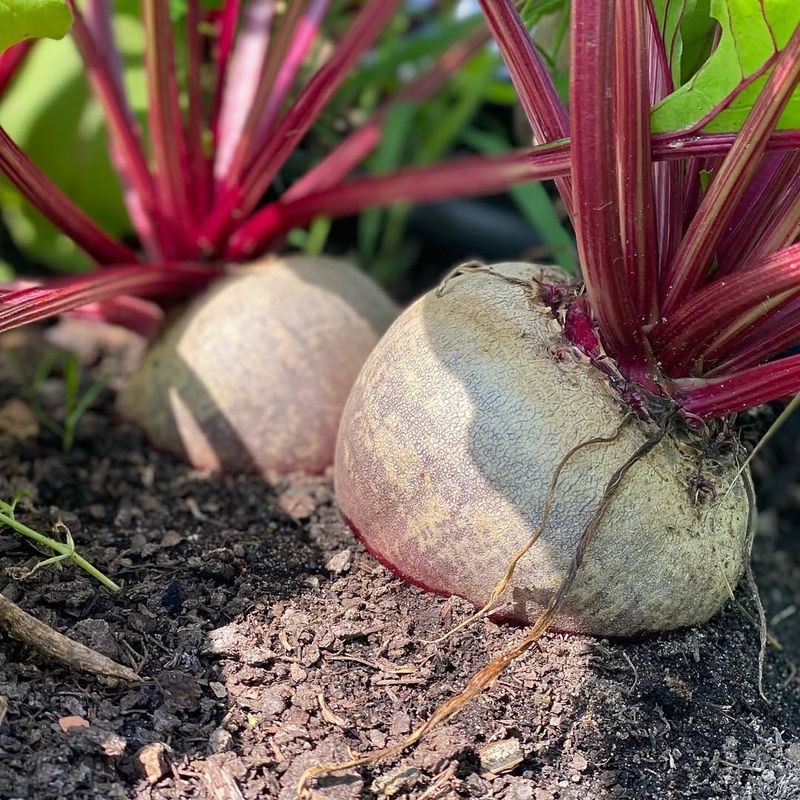
This root vegetable might create tension in the garden when near cucumbers. Beets require a lot of nutrients, which can lead to competition with cucumbers.
This nutrient competition can hinder cucumber growth and result in smaller yields. For a prosperous cucumber crop, consider planting beets away from them.
23. Parsnips
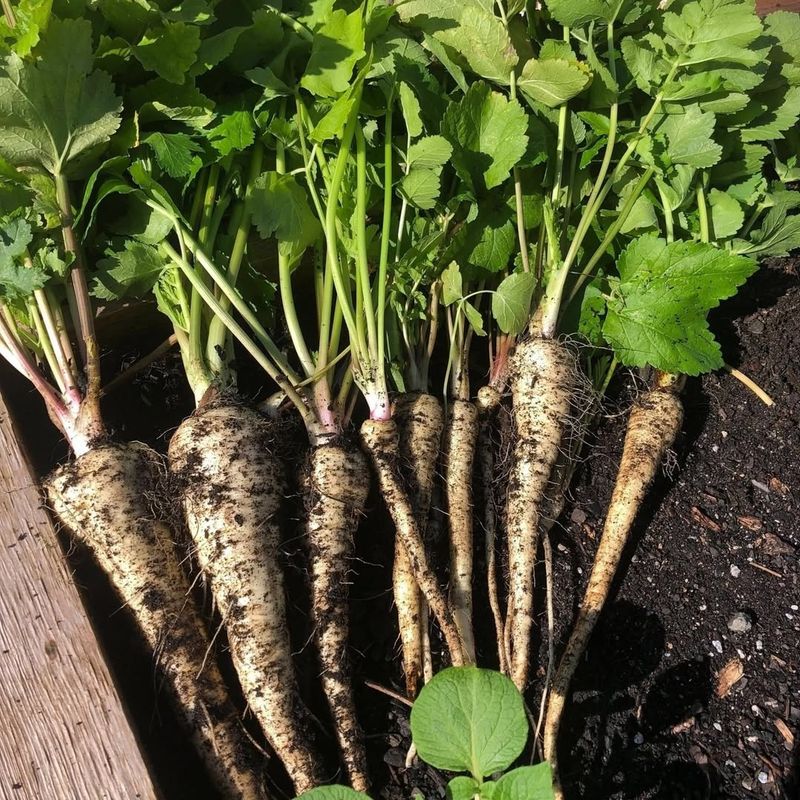
These white root vegetables can disrupt a cucumber’s peaceful growth. Parsnips require significant nutrients, leading to competition with cucumbers.
This competition can result in poorer growth and reduced yields for your cucumbers. For a successful cucumber crop, it’s best to plant parsnips in a different section of your garden.
24. Leeks
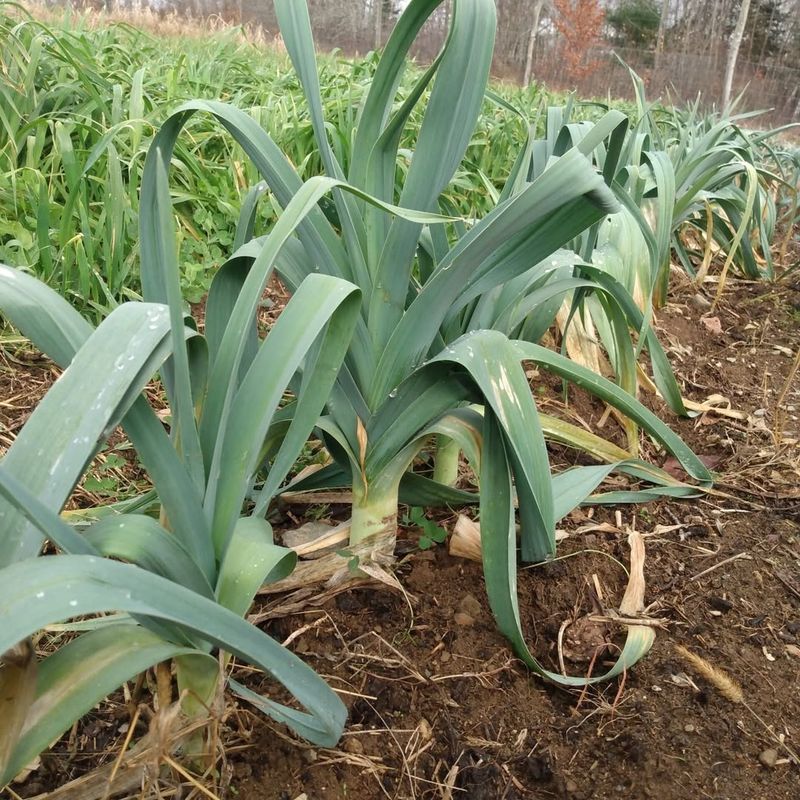
These alliums can be more than just a culinary delight in the garden. Leeks can alter the soil conditions, making it less favorable for cucumbers.
Additionally, their scent can repel pollinators, reducing your cucumber harvest. To maintain a thriving cucumber crop, it’s advisable to grow leeks separately.
25. Rhubarb
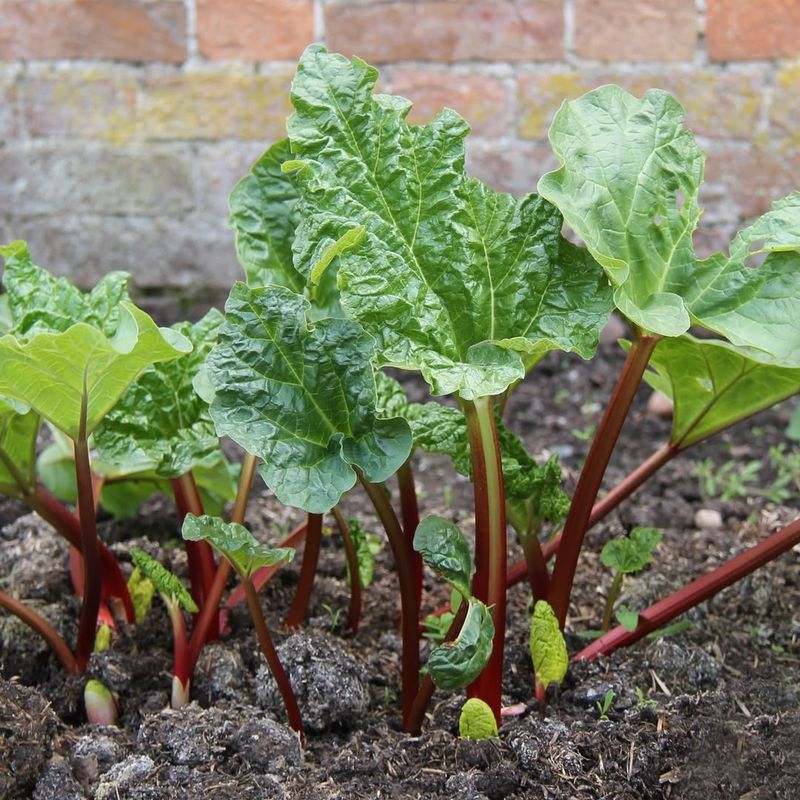
This perennial might not be the best companion for cucumbers. Rhubarb requires a lot of nutrients, which can lead to competition with cucumbers.
This nutrient competition can hinder cucumber growth and reduce their yield. For a healthy cucumber harvest, it’s best to plant rhubarb away from your cucumber patch.
26. Celery
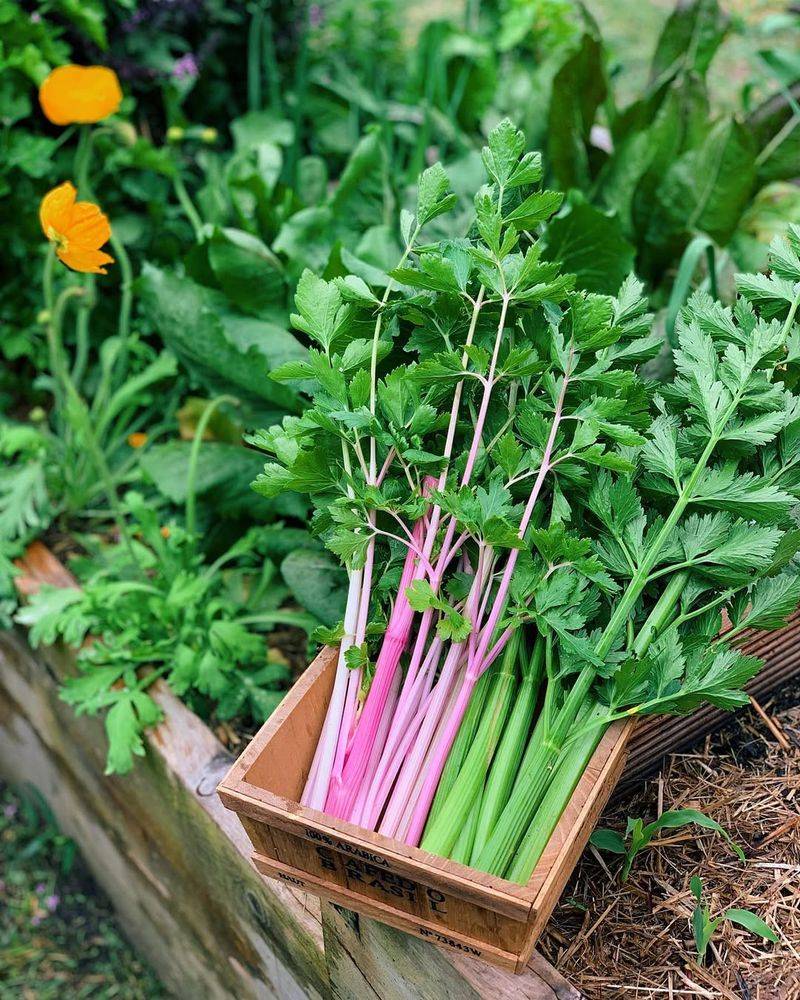
This crunchy vegetable can cause a rift in the garden. Celery demands a significant amount of nutrients, leading to competition with cucumbers.
This heavy need for food can result in nutrient deficiencies and stunted growth for cucumbers. To ensure a flourishing cucumber crop, consider planting celery in a separate garden bed.
27. Chard
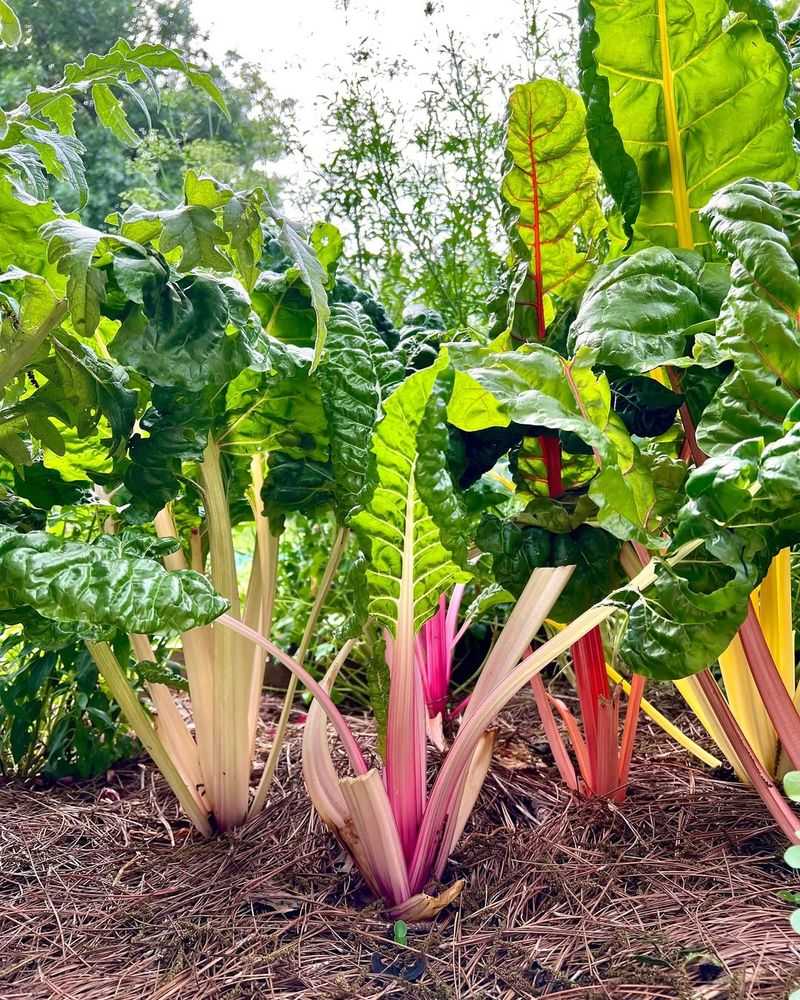
These vibrant greens can cause more harm than good when near cucumbers. Chard requires a lot of nutrients, leading to competition with cucumbers.
This nutrient competition can hinder cucumber growth and result in smaller yields. For a bountiful cucumber harvest, consider planting chard in a separate area of your garden.
28. Artichokes
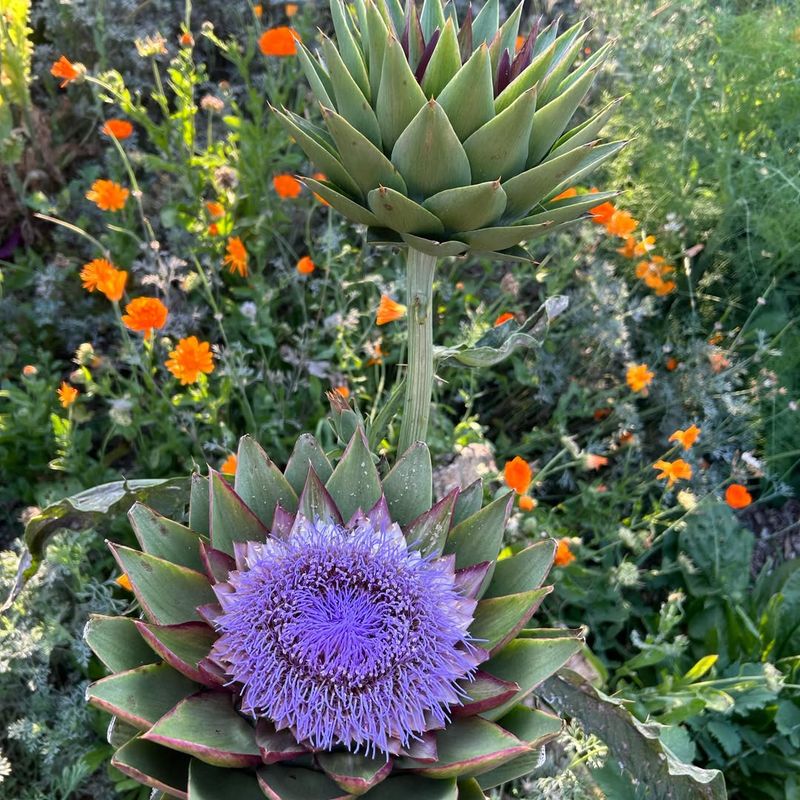
These thistle-like plants can create a challenging environment for cucumbers. Artichokes require a lot of space and nutrients, leading to competition with cucumbers.
This competition can result in poorer growth and reduced yield for your cucumbers. For a successful cucumber crop, it’s best to plant artichokes away from them.
29. Asparagus
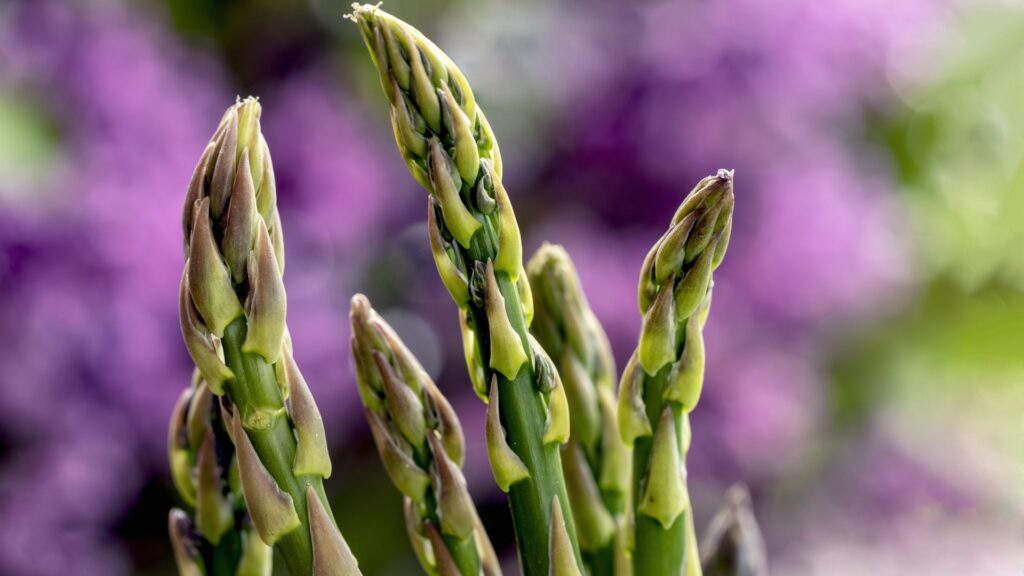
This perennial vegetable might seem like a harmless neighbor, but it can pose challenges for cucumbers. Asparagus plants have deep root systems that can disrupt the soil structure around cucumbers and compete for underground resources.
Additionally, asparagus beds are often permanent, which can make crop rotation with cucumbers difficult, increasing the risk of soil-borne diseases. For cucumbers to thrive, it’s best to keep them clear of established asparagus patches.
30. Okra
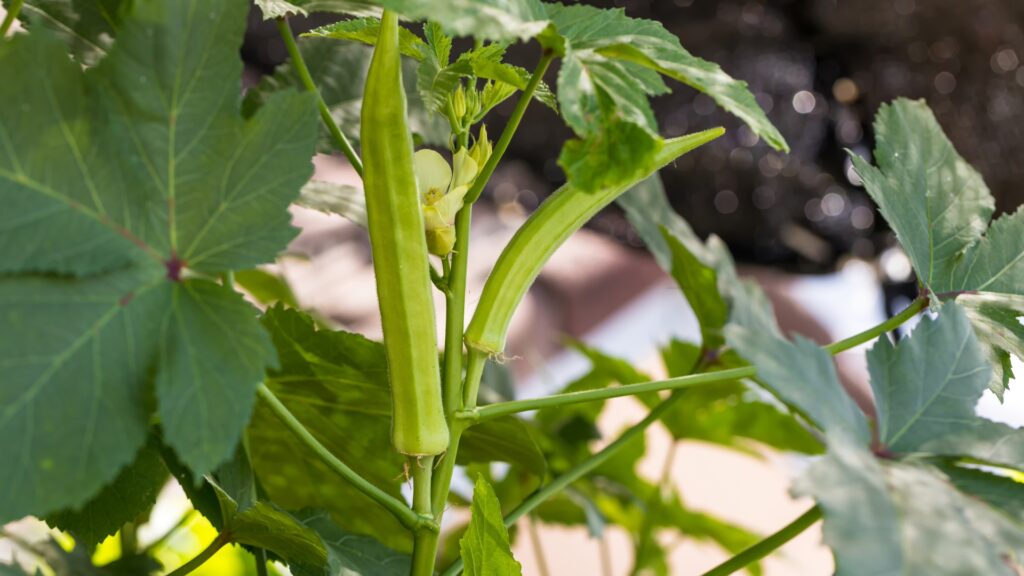
This warm-season vegetable might look like a harmless companion, but it can stir up trouble for cucumbers. Okra has a tall growth habit that can cast shade on nearby cucumber plants, limiting their access to sunlight.
Additionally, okra is known to attract pests such as aphids and stink bugs, which can easily migrate to cucumbers. To promote healthy cucumber growth, it’s wise to plant okra at a distance.

